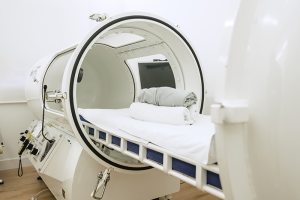Hospitals use mobile clinics and ridesharing to overcome patients' transportation barriers
Health care is often much more complicated than a trip to the hospital for a diagnosis and prescription, especially if a patient has trouble making it to the hospital in the first place. According to a new report from the American Hospital Association’s Health Research & Educational Trust (HRET) 20 percent of a patient's health is linked directly to medical care, while social and economic factors — including nutrition, housing, education and access to transportation — account for another 40 percent. This new report, "Transportation and the Role of Hospitals," tackles the issue of why patients miss appointments and what health care systems are doing and can do to alleviate the problem.
Senior patients cite transportation as the third most common barrier to accessing health services, and 4 percent of children in the U.S. miss a health care appointment each year due to transportation issues. That number jumps to 9 percent for children in families with incomes less than $50,000. Overall, 3.6 million people in the U.S. do not obtain medical care due to lack of transportation. The situation becomes even more complicated when factoring in patients with conditions that make it difficult to travel alone or on public transportation.
CalvertHealth Medical Center, serving Calvert County, Md., is combating the issue by bringing care directly to patients. Its Mobile Health Center is a 40-foot truck with two fully equipped exam rooms for medical and dental services, and transitional services, as a well as a waiting area, classroom space and a wheelchair lift. CalvertHealth launched the community initiative last year after a community health needs assessment revealed that access to health care services was one of the top three priority health needs. The Mobile Health Center schedules regular visits to community centers and local churches embedded in some of the most affected communities.
Denver Health Medical Center took the partnership route to drive better health outcomes in its community. Last year, the health system developed a new platform with Lyft that allows the hospital to order rides for patients in need of transportation services. Denver Health first piloted the program with emergency department patients and has since expanded it to include discharged patients and patients who need a ride to and from outpatient appointments. Lyft and Denver Health plan to expand the partnership to include more patient types. In the first three months, Denver Health ordered more than 200 Lyft rides for patients and saw patient complaints about transportation woes drop to zero.
Hospitals can address transportation issues in a number of ways, but HRET says there are five main strategies each organization should work through when developing a program.
- Understand and assess how transportation can affect overall community health.
- Integrate support for transportation access in the organization’s mission and practices.
- Screen and evaluate patients’ transportation needs.
- Provide direct transportation services through community partnerships or programs.
- Support policy and infrastructure programs that create safer and more accessible transportation options.
For more information, visit HRET.




